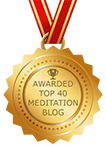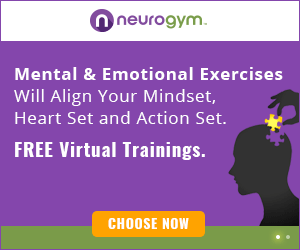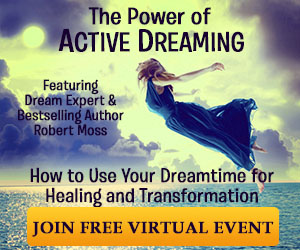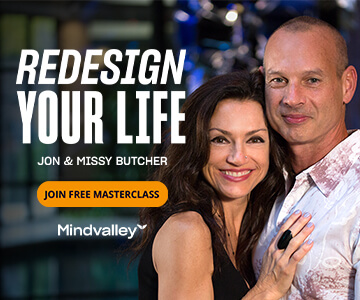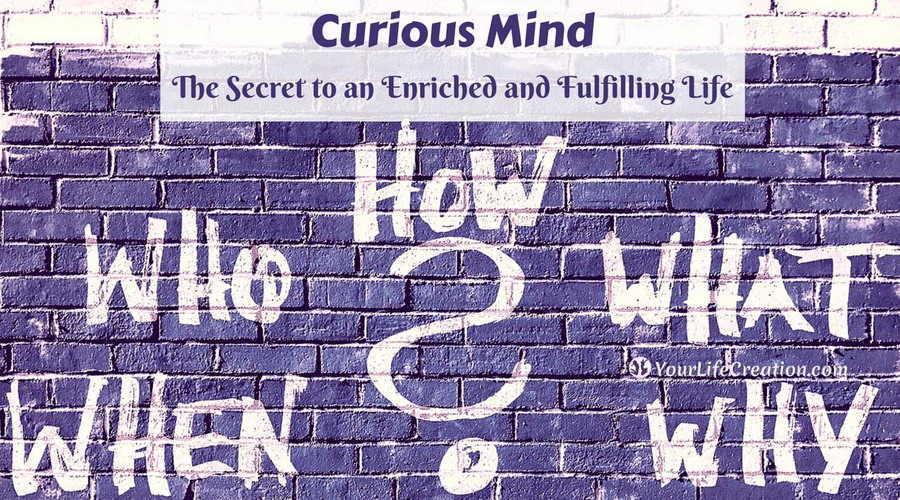
The Wonder Of Curiosity
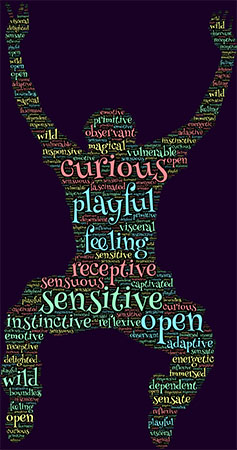 They say that “Curiosity killed the cat”. Luckily, the cat has eight more chances at life (they say that too). Curiosity may not be so good for the cat, but what about us humans? What can curious mind do for YOU? Curiosity is a wonderful trait that found to be fundamental to human happiness, intelligence, and life satisfaction.
They say that “Curiosity killed the cat”. Luckily, the cat has eight more chances at life (they say that too). Curiosity may not be so good for the cat, but what about us humans? What can curious mind do for YOU? Curiosity is a wonderful trait that found to be fundamental to human happiness, intelligence, and life satisfaction.
When you retain that childhood sense of wonder, awe, and amazement about life, your innate sense of curiosity will remain strong. This will lead you to be a life-long learner, with a thirst for knowledge, and your life will be enriched in the process.
Have you become a bore? Is your life the same day in and day out, predictable, stale and void of excitement or adventure? Will you be satisfied with your life on your deathbed?
- Curiosity keeps your mind active and healthy and keeps you pursuing interests all the way through life.
- Curious mind leads to change, adventure, deeper connections with others, personal satisfaction, mindfulness and greater happiness.
- It makes you smarter too.
There are ways to cultivate curiosity so that you need never be bored again. Your life can be so much more fulfilling when you entertain a curious mind.
Curious Mind By Nature
A baby has a curious mind by nature. As soon as a newborn comes into the world, a voyage of discovery has begun. At first, they appear to be simply passive observers. But, as you all know, much is going on inside the brain and body of that apparently helpless being. Their learning gradient is sharp, and it happens because of their innate desire to acquire knowledge, information, and experience.
 A young child’s natural curiosity and fascination with the world around them is what leads them to learn. They learn to move, think, speak, play, and mature, all because of their natural desire to explore what is all around them.
A young child’s natural curiosity and fascination with the world around them is what leads them to learn. They learn to move, think, speak, play, and mature, all because of their natural desire to explore what is all around them.
They interact with their immediate external environment, touching, tasting, climbing, clambering, picking up, dropping, grasping, viewing, sniffing, smelling, licking, tasting, sucking, chewing, chomping, throwing, bouncing, jumping, hopping, skipping, going backwards, crawling, rolling, spinning, mimicking sound, laughing, breathing, sitting still, listening, being, being aware.
Inside each newborn mind is an incredible intelligence whose purpose seems to be all about learning through discovery.
Science even tells us that without this natural exploration and interaction with the world around them, babies’ development, and learning capacity can be hindered, causing later problems in school with reading, writing, listening, and comprehending.
How Curious Are You?
 Are you still have a curious mind like that? Or, has something changed? Are you filled with a zest for living that makes you jump out of bed in the morning? Or, do you feel like life already gotten the better of you?
Are you still have a curious mind like that? Or, has something changed? Are you filled with a zest for living that makes you jump out of bed in the morning? Or, do you feel like life already gotten the better of you?
Do you feel so overwhelmed and tired by the stresses and strains of contemporary life, raising children and paying bills, that you have more or less lost the desire to stay curious?
According to the dictionary definition, curiosity is “the strong desire to learn or know something.” Do you fall into the category where you’ve simply lost the desire to learn, or where you just can’t be bothered?
There are a number of reasons why reconnecting to the curious part of yourself and reigniting your passion for what excites you, could be beneficial to your mind, body, spirit and most important to elevate your quality of life and help you to live life to the fullest.
13 Benefits Of Cultivating Your Curiosity
Here are some ways in which cultivating a curious mind can be good for you and can really help you live life to the fullest.
Curiosity Brings Its Own Reward
 The newest scientific findings in the field of cognitive neuroscience state that curiosity brings its own reward. When you feel curious about something, the limbic system in your brain lights up, and this is the part of your brain that associated with reward. This is why teachers use curiosity as a way to “hook” their students into their subject matter.
The newest scientific findings in the field of cognitive neuroscience state that curiosity brings its own reward. When you feel curious about something, the limbic system in your brain lights up, and this is the part of your brain that associated with reward. This is why teachers use curiosity as a way to “hook” their students into their subject matter.
If you can make the material interesting, then it becomes much easier to engage with. Curiosity actually puts the brain into a state of arousal that makes learning easier. This can make it simpler and much less painful to learn boring information. If you sandwich the boring stuff up in something, which you are naturally curious about, it, becomes easier to remember!
Variety Is The Spice Of Life
 Research has found that when we encounter new things and feel excitement and interest in them, our brains release dopamine and other neurochemicals that make us feel good. This means it is a good idea to seek out new and novel ways to engage with the world. It will, quite simply, make you feel happier.
Research has found that when we encounter new things and feel excitement and interest in them, our brains release dopamine and other neurochemicals that make us feel good. This means it is a good idea to seek out new and novel ways to engage with the world. It will, quite simply, make you feel happier.
What can you do differently? What can you try that you’ve never tried before? Have you ever considered writing a bucket list?
It may help you engage with life in a novel and stimulating way that you wouldn’t have thought about otherwise. This can bring a fresh perspective and if you take action on your bucket list, following through on your curious impulses will lead to greater life satisfaction.
Human Connections
 When you genuinely interested in another human being and show that you really feel curious about him or her, they will feel that. They will feel your authenticity and respond to that, and they will find it easier to connect with you. They are more likely to like you! Being curious about other people is a great way to be perceived as a likable person! And you will delight in the process of learning about people if you are naturally curious about them.
When you genuinely interested in another human being and show that you really feel curious about him or her, they will feel that. They will feel your authenticity and respond to that, and they will find it easier to connect with you. They are more likely to like you! Being curious about other people is a great way to be perceived as a likable person! And you will delight in the process of learning about people if you are naturally curious about them.
You will also be more open to conflict resolution if you can remain open to another person’s perspective, even if you disagree with it. Remaining curious and willing to understand others can help in this regard.
Creating human connections is one of the key experiences of life, and the more you do this, the more your life will feel fulfilled and much less empty.
Curiosity Is Like Brain Gym
Another way that being curious can be good for you is, that when you stay mentally engaged and interested, continuously learning about new things, your brain remains active and “exercised”; you are less likely to experience the cognitive decline so often associated with aging, such as memory loss or dementia. Curiosity keeps your brain in shape!
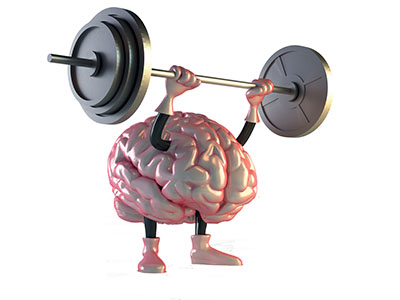 Some of the most mentally alert older people are those who have retained an interest in the world around them and have kept learning all the way through their lives.
Some of the most mentally alert older people are those who have retained an interest in the world around them and have kept learning all the way through their lives.
You can even use some exercises from Brain Gym to help keep your mind alert and sharp. One such exercise is the cross-crawl. It helps to exercise and balance equally the two hemispheres of the brain, which can lead to more balanced thinking. The left-brain associated with logical and analytical thinking and the right brain associated with creative thought.
To do the cross-crawl, stand with your legs hip-width apart. Lift the right knee up and touch it with your left elbow. Switch to the other side and bring your left knee up to touch the right elbow. Repeat several times.
Curiosity Helps You Embrace Adventure!
 Staying curious can help you become a more daring risk-taker. Because you really want to know. You are more willing to leave the old and familiar routine and take up a challenge to reap the rewards of new knowledge and stimulation.
Staying curious can help you become a more daring risk-taker. Because you really want to know. You are more willing to leave the old and familiar routine and take up a challenge to reap the rewards of new knowledge and stimulation.
This mindset enables you to embrace change and stay cool with uncertainty. This leads to a far more satisfying life than the one where you stay huddled up in the comfort of the mundane, yet safe and familiar.
Curiosity helps you to become an explorer and an adventurer in the game of life. It helps you to leave your comfort zone and, “Go boldly where no man has gone before…”
Curiosity Leads To Flow
When you are engrossed in your topic or activity, you can more easily experience “flow,” a term coined by psychologist Csikszentmihalyi. “Flow” is the experience of being fully present, enjoying what you are doing. It is that halcyon space where you lose all track of time because you are so immersed in what you are involved in or learning about. It’s also known as the “zone”.
Time falls away, and everything becomes effortless. Flow can even lead to states of ecstasy, according to Csikszentmihalyi, where a process such as composing or painting, seems to be happening all by itself, and you are just sitting there in awe, watching yourself create in a state of wonderment! You can even become curious about which activities might lead you into a state of flow.
Open Engagement With Life
 Just like anything we practice often, we become better at it. Practicing being curious about life leads to more openness and engagement with life. Which leads to more experiences and adventures, which lead to more satisfaction, meaning, and fulfillment.
Just like anything we practice often, we become better at it. Practicing being curious about life leads to more openness and engagement with life. Which leads to more experiences and adventures, which lead to more satisfaction, meaning, and fulfillment.
Curiosity, which leads to more engagement and more activity and learning, can also lead us to more flow, where life truly becomes a magnificent place to be, and even revel in.
Curiosity Positively Associated With Being Smarter
Studies have found links between intelligence and higher levels of curiosity in both children and adults. In his book, Curious? Discover the Missing Ingredient to a Fulfilling Life, (HarperCollins, 2009), author Todd Kashdan, Ph.D., explains that research has even shown links between curiosity and greater problem-solving capacity, and analytical ability.
Einstein himself was quoted saying that he didn’t possess any particular intelligence, only a great capacity for imagination! His curious mind led to him being hailed as the greatest physicist of all time, in spite of his early struggles with school and academia. He didn’t even speak until the age of nine, and his father died thinking of his son as a failure. However, his curiosity led him to make some radical discoveries and being considered, not just highly intelligent, but in fact, a genius.
Curiosity Makes You Happy
 Stress management pioneer and psychologist Martin Seligman, Ph.D., and colleague Chris Peterson, Ph.D., undertook an intensive research project into the fundamentals of human happiness. They looked at ancient wisdom texts from ancient philosophers, holy books, and modern-day writers.
Stress management pioneer and psychologist Martin Seligman, Ph.D., and colleague Chris Peterson, Ph.D., undertook an intensive research project into the fundamentals of human happiness. They looked at ancient wisdom texts from ancient philosophers, holy books, and modern-day writers.
From their analysis of themes and patterns in these writings, they deduced that human beings have 24 basic strengths. Curiosity was one of those strengths most closely associated with being happy.
Here is what a recent Gallup poll, that designed to be representative of the world’s population, found. When people have someone to refer to for support, someone upon whom they can rely, and have recently learned something new, then these people were more likely to have experienced enjoyment than people who did not have access to those two things. Of course, the happier you are, the better your life will be as it will spill over into all the areas of your being.
Mindfulness
Whichever way round it is, when you practice being in the present moment, you become more aware of your senses: Touch, hearing, smell, taste, and sight.
Try this exercise now, as you are reading these words, notice the font, page colors, all that is on the page.
Notice what you can be aware of in your peripheral vision. Sounds, sights, smells?
Stop reading for one moment and listen to the sounds inside the room, and beyond the room that you are in.
Even if you don’t notice any smells, tune in to the sensation of the cool air entering into your nostrils and the warm air coming out through your nostrils.
Can you taste anything right now?
 How does it feel to sit in the chair?
How does it feel to sit in the chair?
Come back to a more mindful experience of reading. Has anything changed for you?
As you become more present, you will experience the richness of life as each moment goes by. What happens to your mind? Does it lose its sense of agitation, restlessness, and anxiety?
Even asking these types of questions as you begin to practice mindfulness can develop your “curiosity muscle”. In this way, certainly, curiosity can make you more mindful.
And when you are mindful, you develop a deeply engaging experience of each moment, which naturally lends itself to a curious mind.
Being present allows you to become aware of things and details you wouldn’t notice if your mind were preoccupied with worrisome thoughts, stress and “to-do” lists. Becoming present makes space for curiosity to flourish. Being present allows you to enjoy more moments in your life, helping to enrich your life experiences.
Becoming Curious About The Everyday
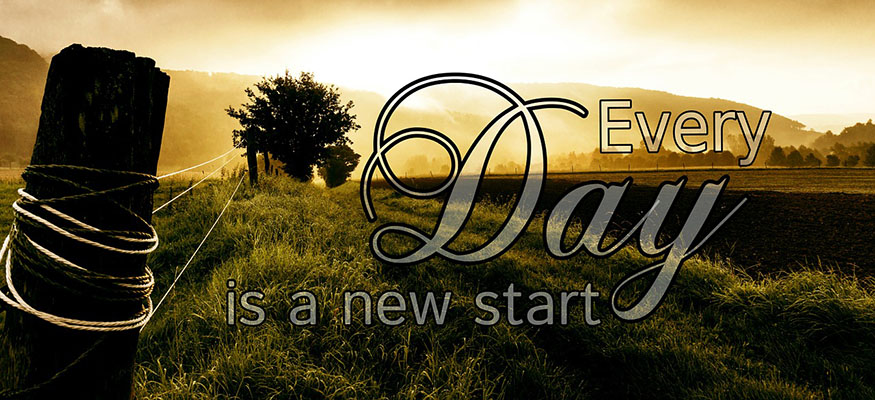 Curiosity can help you turn the most mundane of everyday tasks into something enjoyable. When you learn to see things from a new angle or perspective, you can not only learn something new, but you can benefit from the thrill of discovery and gain enjoyment from the process.
Curiosity can help you turn the most mundane of everyday tasks into something enjoyable. When you learn to see things from a new angle or perspective, you can not only learn something new, but you can benefit from the thrill of discovery and gain enjoyment from the process.
Imagine looking at the bubbles in your sink full of dishes with fresh eyes; instead of thinking how dreary a task it is, focus on the beauty and miracle of those bubbles, their perfect roundness, and the incredible rainbow of colors they refract.
Just as a young child will incessantly demand, you too can learn from asking the question, “Why”. Just type it into Google with your question, and you will be amazed at what you can find out. For example, about the question of why bubbles are rainbow colored reveals that it is to do with light refraction on the inside and outside of the bubble. But ALSO the bubble itself made of an incredibly thin wall of water, held in place by detergent molecules on either side. Bet you didn’t know that before!
This is one of the great bonuses of being plugged into the internet. We have knowledge at our fingertips and can learn pretty much anything we want to, just by typing a few words on our keyboards.
 You Need Never Be Bored Again
You Need Never Be Bored Again
With such a vast expanse of knowledge available to us, there is always going to be a way to satisfy our curiosity.
It Supports Living Life To The Fullest
Curiosity naturally leads to doing more, and the more curious you are, the more diverse experiences you can enjoy. And experience is one of the extreme ways to live life to the fullest.
Developing Your Curiosity
Here are several ways you can develop and enhance your curiosity.
- Keep an open mind. Sometimes you may think you know something, but there may be more to an equation than you previously realized. Keep an open mind, and you may learn something new.
- Try new things. Maybe you wonder what it would be like to surf, snowboard, or play the piano. Perhaps you’re curious about philosophy, mountain climbing or how to knit. Engage and develop these curiosities and do these activities. In this way, curiosity can lead you to a life full of new and exciting adventures!
- Ask questions. It doesn’t really matter which questions you ask, as long as you keep on asking them. The toddler who relentlessly asks, “Why?” is on a great learning curve and quest for discovery. They have an insatiable appetite to learn about their world; they live in a constant state of curiosity and wonder. Try to access the curious mind of your inner three-year-old!
 Seek to see things from a new angle. When you look at something from a different angle, it looks completely different, right? Therefore, it makes sense that when you learn about a new angle of something, you will be learning something completely different about a subject you may have thought you were knowledgeable about.
Seek to see things from a new angle. When you look at something from a different angle, it looks completely different, right? Therefore, it makes sense that when you learn about a new angle of something, you will be learning something completely different about a subject you may have thought you were knowledgeable about.- Try to look at things from another person’s perspective. By being curious about another person’s point of view, you can develop compassion and empathy for them as you learn more about their standpoint.
- Keep learning, and keep it fun. As long as you can enjoy the learning process, you can maintain your curiosity ad infinitum. You could even get curious about what kind of learner you are and choose the method of learning that you resonate most with. Are you a visual learner? Do pictures help you remember things? Or are you a kinesthetic learner, somebody who like to learn by doing, and by moving around in space? There are auditory learners, those who learn best by listening and hearing. And there are verbal learners who are more linguistically inclined. Of course, you can go ahead and learn all about the different types of learning styles, and figure out which style suits you best. Once you know your learning style, you can always keep learning fun!
- Curiosity breeds more curiosity. Once you find an interest in something, it leads you to want to discover more and more and makes you much more curious about along the way.
Final Thoughts
Babies have a curious mind by nature. They naturally want to learn and discover about the world around them. And that intrinsically linked to their growth and development. As adults, it is easy to allow life to get the better of us and leave us exhausted and overwhelmed, with little energy for pursuing our curiosity. However, when we do, we can experience an enriched life with more satisfaction and sense of fulfillment.
Curiosity brings its own reward. Curious mind greatly supports living your life to the fullest.
When you are curious, you activate the limbic system, that part of your brain that associated with reward. Curiosity makes learning easier because of course we interested and engaged with that which we are curious about. This does make it easier to learn the boring stuff, however; if we bundle it up in the good stuff, it makes it easier to remember.
Curiosity causes your brain to release dopamine and other feel-good neurochemicals. Being genuinely curious about other people will help you forge deeper bonds and connections and will aid you greatly in conflict resolution since it allows you to be open to seeing the other person’s perspective. Being curious helps keep your brain in shape. It keeps your brain tuned up and exercised, as you are constantly learning and asking questions about things. This can help prevent Alzheimer’s or dementia from developing.
Brain Gym exercises can help keep your brain turned “on” for enhanced curiosity and higher learning. Curious mind leads to a more adventurous life. It makes you more daring and more likely to take risks. It can turn your life into an adventure!
A curious mind can help you get into the “zone” or the state of “flow”. You will feel as though time is standing still and you can even feel ecstatic in this place of complete presence. Curiosity makes you more mindful. You become more engaged with the present moment and with all your senses as you become absorbed in learning about your subject.
Curiosity makes you smarter, and it makes you happier. A curious mind can turn the tedium of everyday life into a brand-new adventure if you are willing to remain open to the possibility of seeing things from a new perspective. The internet can be the gateway to learning, as long as you ask questions and remain interested enough to find out “Why”.
If you can figure out your learning style, then it is much easier to make learning fun for you. That way your curiosity need never be sated, and you can remain a life-long learner, on an adventure of the mind that will bring you deep inner satisfaction, wisdom and really help you live your life to the fullest.














